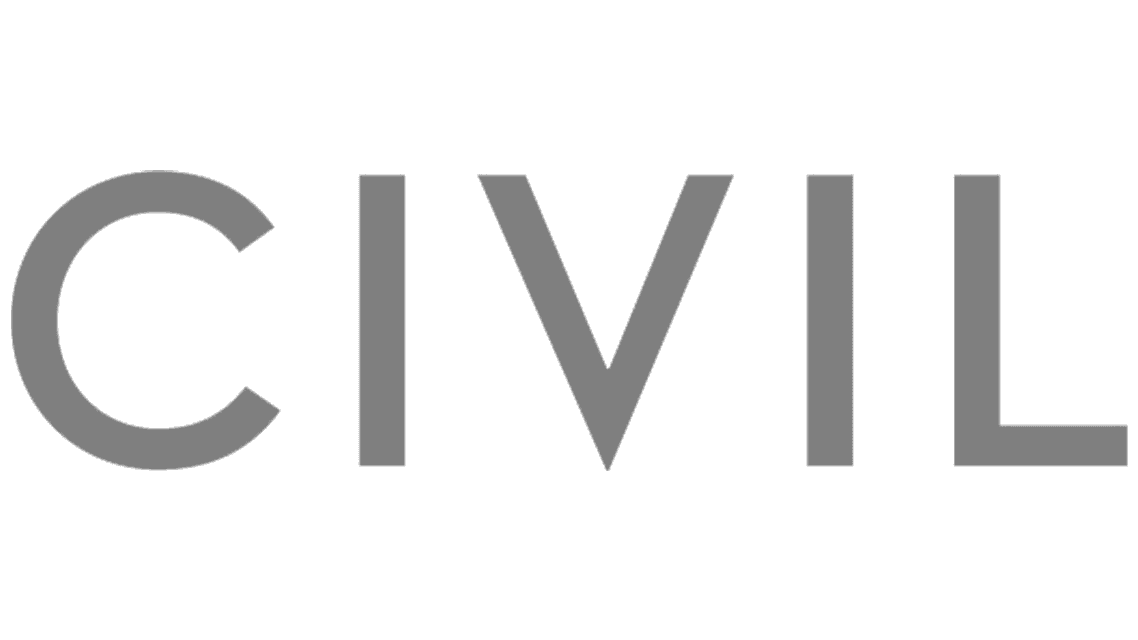
Case study
How OC Media is training the next generation of freelance journalists
In a nutshell
Through its OC Lab, OC Media provides students based in the North and South Caucasus with journalism training, teaching them reporting skills, safety and how to cover important topics impacting the region.
Background
- OC Media (Open Caucasus Media) is a non-profit news organisation based in Georgia. It was established in 2017 and it serves Russian and English-speaking audiences in Armenia, Azerbaijan, Georgia, the three disputed territories of Abkhazia, Nagorno-Karabakh, and South Ossetia, as well as Russia’s North Caucasus.
- OC Media publishes around three stories a day in English, and an average of 15 in Russian, including small updates, social media-only content and in-depth articles. This is a mix of staff and freelancer pieces about the issues, people and movements shaping the region.
- Its team consists of 14 staff members based in the Tbilisi office, one part-time journalist based in Armenia, and three reporters in the republics of North Caucasus. The organisation collaborates with 20 to 30 freelance journalists on a regular basis.
- OC Media translates and cross-publishes in English and Russian content from other small media outlets based around the Caucasus region, which are all publishing in their local languages and have smaller audiences.
- To cater to the different ways its various communities consume news, the organisation publishes different types of content not only on its website, but also on Twitter, Facebook groups, WhatsApp groups, Telegram and Instagram.
- In May, OC Media received an Emergency Fund grant of €25,000 from the European Journalism Centre through the European Journalism COVID-19 Support Fund.
How did they do it?
- The OC Lab has two functions: on one hand, it is a paid-for training service that other organisations and groups can commission OC Media to run on their behalf, bringing in revenue for the organisation. And on the other hand, it is a training mechanism that OC Media employs to teach journalism skills to young people in the region.
- The team has, on occasion, found it challenging to find qualified freelance journalists in the region who would share OC Media’s values and ways of working and editing, so the idea behind the Lab concept was to train a completely new generation of journalists.
- In 2019, OC Media ran a trial edition of the OC Lab with journalists from Central Asia, to test the concept and the organisation’s ability to deliver training.
- Each Lab has up to 12 participants, who are selected through an open call. These can sometimes be journalism students, but not necessarily - any young person between the age of 18 and 24 who is passionate about journalism can apply. Travel and accommodation costs are covered by OC Media.
- Participants don’t just attend a single Lab. As their skills and knowledge advance, they receive further training in subsequent Labs. The first Lab provides an introduction to journalism, while following editions focus on practical skills (such as structuring articles or multimedia production) and how to report on issues commonly seen as more difficult, such as gender or conflict.
- Participants who successfully complete the training are also given small grants to develop their first stories, and they work with OC Media editors to publish some of these stories on the website.
- OC Media has already secured funding and selected participants for its first OC Lab, which is currently on hold until it is safe to run in-person events again. The team decided not to run the training online, because it would not allow for the same degree of close collaboration - the idea behind the Labs is also to kickstart future cross-border stories among the participants, many of whom have never met before. This first edition will have participants from the South Caucasus (Armenia, Azerbaijan, Georgia).

What did they learn?
- The Lab trial run in 2019 was, for many of OC Media’s staff members, their first time preparing and delivering training sessions. The positive feedback received has served as inspiration and motivation for OC Media journalists, who have since kept practicing their training skills internally with their colleagues.
- The first OC Lab, which was supposed to take place in April 2020 and is currently on hold because of the pandemic, received almost 100 eligible applications. The main criterion for selecting the participants was their motivation, and the team was often moved by people’s personal stories and their burning passion for becoming journalists.
- The Lab training features a security component, as the organisers have identified it is important for all students to learn about digital and physical safety at an early stage.
- Teaching more advanced skills or sensitive topics, for example conflict reporting, in later trainings means that participants are more likely to approach these in a more professional manner. OC Media also prefers not to label participants as being from conflict regions or not, as what matters most during the Labs are people’s skills and professionalism.
- Providing a grant to participants who complete the training course helps them develop their first real journalistic projects, and it also stems from the team’s belief that all journalists should be paid for their work, even if they’re only at the beginning of their career.
- OC Media sees this training as a continuous investment that can benefit the organisation as well as contribute to the strength of the journalism ecosystem in the region: instead of training a group of participants once and then bringing in new people, the organisation wants to keep engaging the same participants and explore opportunities to work with them. The goal is to build and strengthen a network of freelance journalists that OC Media and other small news organisations in the Caucasus can collaborate with regularly in the future.
How has engagement changed during COVID-19?
- Like many other organisations, OC Media has had to postpone or adapt activities since the start of the COVID-19 pandemic, including around the OC Lab, the type of content it produces and its fundraising strategy. This has put a huge strain on the team’s capacity.
- After lockdown measures were introduced, they started a new format: short live updates on the COVID-19 situation, including tackling misinformation. They noticed readers were less interested in the regular OC Media content, so all staff members focused their efforts on producing these live news updates.
- OC Media’s monthly readership in the months since the pandemic started increased by 23.1%, compared with the analogical period before. Their Russian-language readership more than doubled compared to previous months. Increasing this underserved audience, especially ethnic minorities in the South Caucasus, has always been a priority and a challenge for OC Media, as these communities are not usually easy to reach (this is also why partnering with other outlets in the region is useful).
- Before the pandemic, OC Media published the same content and formats in both English and Russian. In the last few months the team has noticed users who read in English prefer in-depth, long reads with extensive background, while the Russian language readers mostly consume the short news updates on different social media platforms.
- The level of engagement is also different: stories in Russian are read less on the website, but they are discussed and commented on a lot on Facebook and in social media groups, whereas English language stories are read more on the website but receive little engagement on social media.
- Because of this, the Russian language service will continue to offer the short updates going forward (all English-language content will continue to be translated into Russian). OC Media has recently hired a Russian-speaking outreach officer to oversee community engagement and experiment more with social media formats.
- Four months ago, OC Media introduced recurring subscriptions, allowing people to contribute various amounts between €5 and €100 (or any custom amount) per month. Currently, recurring subscriptions make up around 1% of the organisation’s monthly budget (excluding any one-off donations they also receive). Those becoming recurring subscribers tend to be researchers or consultants that follow OC Media’s work through Twitter, and in the future, the plan is to convert the subscription into a membership model with various member benefits.
- OC Media is primarily donor-funded and has been working since its beginning towards diversifying its revenue through subscriptions, services such as the OC Lab and renting out office space. In the last few months, after COVID-19 hit and a funder withdrew their core funding support, Dominik K Cagara, one of OC Media’s founders, started focusing solely on fundraising (fundraising was previously done jointly with co-founder Mariam Nikuradze).
- This helped OC Media secure a few small grants and plan a fundraising strategy where different funders support different components of its work (e.g the Lab, operational and management costs, etc).
- The team also started a newsletter for its current funders, updating them on the organisation’s ongoing and upcoming activities. The feedback from recipients has been positive, and the newsletter has helped OC Media obtain one small grant and learn about other, non-financial opportunities for cooperating with funders and other organisations (for example, securing a potential event space for a future conference).
In their own words
Mariam Nikuradze, co-founder and co-director, OC Media
“One thing we’ve learned is that core funding is becoming less and less popular and donors are slowly trying to stop doing it, so we’ve started thinking about this as a big puzzle where each donor funds a specific component of OC Media they are interested in. We think this will be more sustainable than being dependent on one donor.”
How would you improve it?
"Through the OC Lab we want to teach students the basics of journalism but also all the issues related to it, for example why we should cover issues about women’s rights, or labour rights, or conflict. We want them to learn by cooperating side by side, next to each other.
"Our experience of working with journalists and editors shows that if we set the bar high, most media professionals do their best to meet our standard.”



